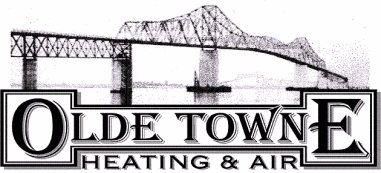
Ever done a double take when you took a look at your last energy bill? Although high energy bills can be the consequence of intense weather conditions, consistently high bills can quickly suggest an inefficient HVAC system or your home is wasting energy because of other means, including drafty windows or poor insulation.
One of the simplest ways to figure out whether your home is wasting energy is by calling a home service expert to complete a home energy audit, also referred to as a home energy assessment. Keep reading to learn more about home energy audits, including what they are and their benefits.
What Is a Home Energy Audit?
An energy audit is a comprehensive inspection of how much energy your home uses up and whether – and where – your home may be losing or wasting energy. An inspector will review past energy bills in the course of an energy audit to figure out where energy is being consumed and how much.
The ultimate goal of an energy audit is to help homeowners save money on their energy bills by suggesting energy-efficient improvements, which might include exchanging your current HVAC system, putting in new insulation, sealing up leaks, or replacing loose windows.
Over the course of the energy assessment, the auditor carries out an inspection of the outside and inside of your home. The auditor completes a blower door test on doorways, windows and fireplaces to find out if there are air leaks in your home. They’ll also check your home’s HVAC system, which also includes the ductwork, the water heater, and the insulation in your attic. Exhaustive assessments may also include inspecting your current lighting system.
Benefits of a Home Energy Audit
It can be tough for the average homeowner to know for sure how efficient their home is versus other similar homes in their neighborhood. However, many energy companies often supply information about where your home ranks in comparison to similar homes and whether it’s more efficient, about average, or inefficient in contrast with your neighbors’ homes. This is a useful starting point to figure out if you need an energy audit performed.
Some of the benefits of a home energy audit include:
Understanding How Efficient Your Home Is
It’s good to know how efficient your home is and where you’re consuming the most energy. For example, if your ducts are leaking air, it could lead to a significant increase in your energy bills and increased wear and tear on your HVAC system because it has to stay on longer to fully heat or cool your home.
Making Energy-Efficient Updates
An energy audit will expose where you need to make energy-efficient improvements to cut back on energy and lower utility bills. This can include replacing old weatherstripping or installing a new energy-efficient furnace.
Enhancing Health and Safety
Allowing air to slip into your home through doors and windows, or due to a lack of insulation can cause unwanted moisture to build up, which may negatively affect your home’s humidity levels or produce mold. This can cause health issues, particularly for people suffering from asthma or allergies.
Raising Your Home’s Retail Value
Energy-efficient homes are desired by homebuyers. You can sell your home more quickly or for more money by demonstrating to prospective buyers that it’s energy efficient.
How to Do an Energy Audit of Your Home
Although handling an energy audit on your own will not be as detailed as calling a professional, it’ll give you a general idea of how energy efficient your home is. If you don’t find any flaws during the DIY test, then you likely don’t need to hire a professional. Try this step-by-step checklist:
- Examine your HVAC system. Leaky ducts can lose up to 20% of conditioned air, leading to more expensive energy bills and excess strain on HVAC equipment. If you notice leaks, use duct tape to eliminate them. If your HVAC equipment is old and inefficient, upgrading to a new system can save you a significant amount on your energy bills. In some cases, it is better to call a reputable HVAC company to inspect your system.
- Look for air leaks. Air leaks on average can increase the energy bills by 10 to 20%. Inside, look for air leaks in areas where there is a draft, such as along the edge of flooring and close to baseboards and electrical outlets. Outside, you can inspect for air leaks in the home’s foundation, siding and mortar. Plug, caulk or seal any air leaks to save money.
- Inspect insulation. If your home is older, it could mean your insulation is too. If you can see the joists, you likely need more insulation.
- Check the ventilation. Make sure that all of your kitchen and bathroom exhaust fans are spinning properly, and inspect for evidence of rot or moisture.
Contact Olde Towne Heating & Air for a Professional Energy Audit
If you would like professional help figuring out how energy efficient your heating and cooling equipment is, contact the HVAC pros at Olde Towne Heating & Air today. We’ve proudly supported the residents of Mount Pleasant with quality home services for a long time. Contact us today to schedule an appointment.
